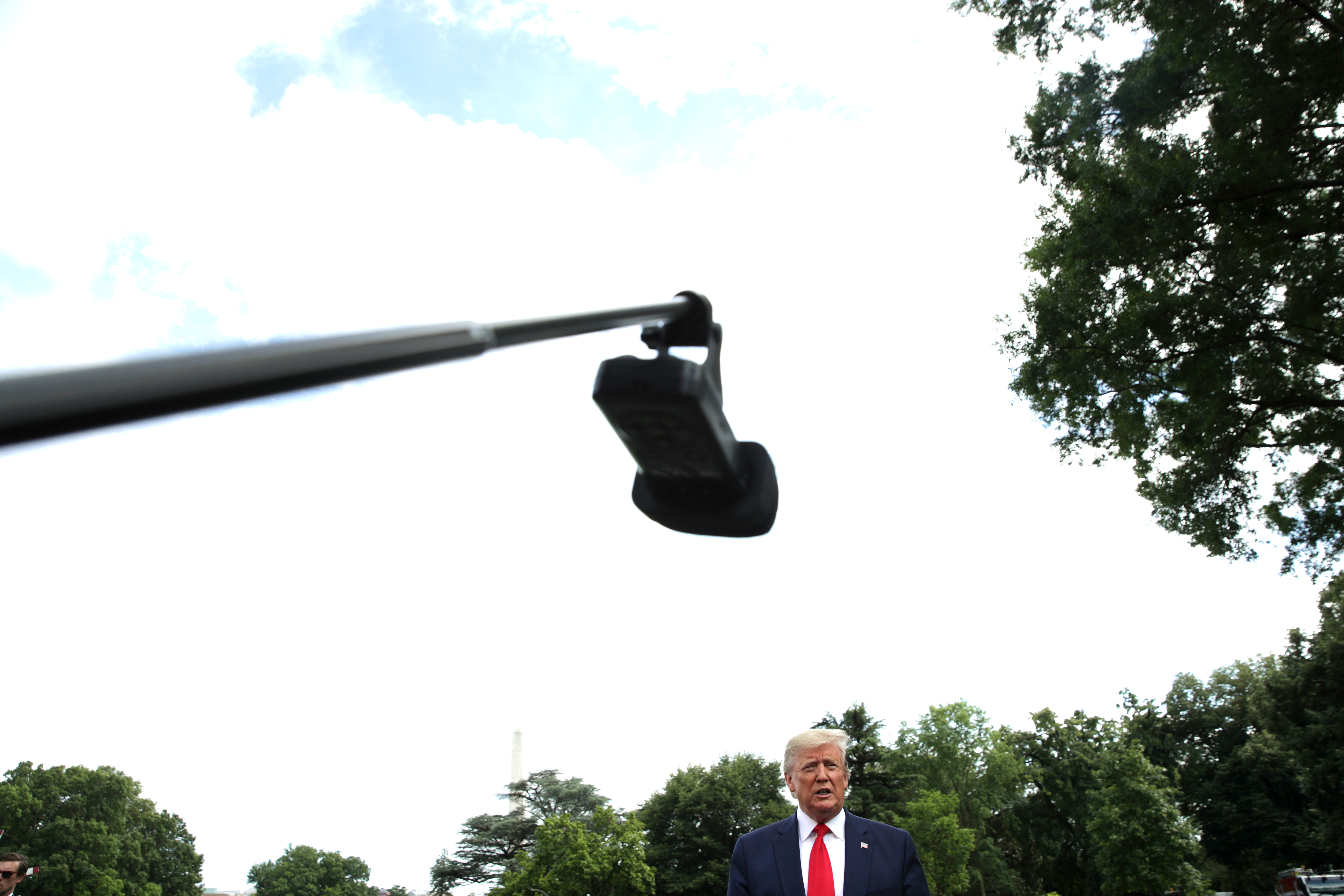Is Trump inviting more foreign election meddling?
Perspectives and analysis from across the ideological spectrum

A free daily email with the biggest news stories of the day – and the best features from TheWeek.com
You are now subscribed
Your newsletter sign-up was successful
The smartest insight and analysis, from all perspectives, rounded up from around the web:
President Trump has gone from "no collusion" to "pro collusion," said Susan Glasser at The New Yorker. In a stunning admission to ABC News anchor George Stephanopoulos, Trump said that he'd accept a foreign government's offer of dirt on his political opponents in the 2020 election. "There's nothing wrong with listening," Trump said. "If somebody called from a country [like] Norway [saying], ‘We have information on your opponent.' Oh, I think I'd want to hear it." Trump expressed ambivalence about notifying the FBI and challenged FBI Director Christopher Wray's recent statement that the bureau should be told if a campaign were contacted by a foreign power trying to influence an election. "The FBI director is wrong," Trump said. It was bad enough when Trump publicly invited Russian operatives to meddle in the 2016 campaign by asking them to find Hillary Clinton's deleted emails, said Jennifer Rubin at The Washington Post. But now Trump is "declaring his intent to repeat the very same conduct" that led to two years of investigation. Our commander in chief just told us that he "is willing to betray his country to win re-election."
Trump's critics are hypocrites, said Andrew McCarthy at The National Review. The Trump campaign was itself a victim of "foreign interference." The Australian government and several European nations funneled unverified intelligence to the Obama administration that the Trump campaign might be getting help from the Russian government. That kicked off an FBI probe that evolved into the special counsel investigation. Those countries "had their own anti-Trump agendas," fearing his NATO-bashing isolationism. The Democratic-funded Steele dossier, which the Obama administration used to justify wiretapping Trump campaign aides, was put together by a former British intelligence agent, Christopher Steele, using sources in Russia. So when a Republican benefits from foreign help, "it's treason." When a Democratic administration gets a tip from a foreign power, it uses it to open an FBI investigation into its Republican opponents.
The Week
Escape your echo chamber. Get the facts behind the news, plus analysis from multiple perspectives.

Sign up for The Week's Free Newsletters
From our morning news briefing to a weekly Good News Newsletter, get the best of The Week delivered directly to your inbox.
From our morning news briefing to a weekly Good News Newsletter, get the best of The Week delivered directly to your inbox.
What a despicable distortion, said Michael Tomasky at The Daily Beast. It's perfectly legal to hire private foreign contractors for opposition research if you're paying a fair market rate and disclose that relationship, as the Clinton campaign did with Steele. Steele had previously cooperated with the CIA and FBI through his work for the British government, "our closest ally." He used Russian sources in his investigation — because he was looking into a Russian plot — but he was working against Kremlin interests. It's absurd to compare that to the Trump campaign's eager acceptance of help from a hostile foreign power including Democratic Party emails stolen by Russian military hackers. Campaign law forbids accepting "anything of value" from foreigners seeking to influence an election.
Actually, the law is murkier than Trump's opponents like to pretend, said Jacob Sullum at Reason. It's not clear that negative information about election rivals counts as a "thing of value" under campaign finance law. Even Robert Mueller admits in his report that this proposition has never been tested in court. To clarify this issue once and for all, said Greg Sargent at The Washington Post, congressional lawmakers have put forward several bipartisan bills to strengthen election security, including requiring campaigns to report any offer of foreign assistance. But Senate Majority Leader Mitch McConnell has already said he will block all such legislation from even receiving a vote. "Trump is openly inviting another attack on our political system." But it's McConnell who is making it an inevitability.
A free daily email with the biggest news stories of the day – and the best features from TheWeek.com
-
 How the FCC’s ‘equal time’ rule works
How the FCC’s ‘equal time’ rule worksIn the Spotlight The law is at the heart of the Colbert-CBS conflict
-
 What is the endgame in the DHS shutdown?
What is the endgame in the DHS shutdown?Today’s Big Question Democrats want to rein in ICE’s immigration crackdown
-
 ‘Poor time management isn’t just an inconvenience’
‘Poor time management isn’t just an inconvenience’Instant Opinion Opinion, comment and editorials of the day